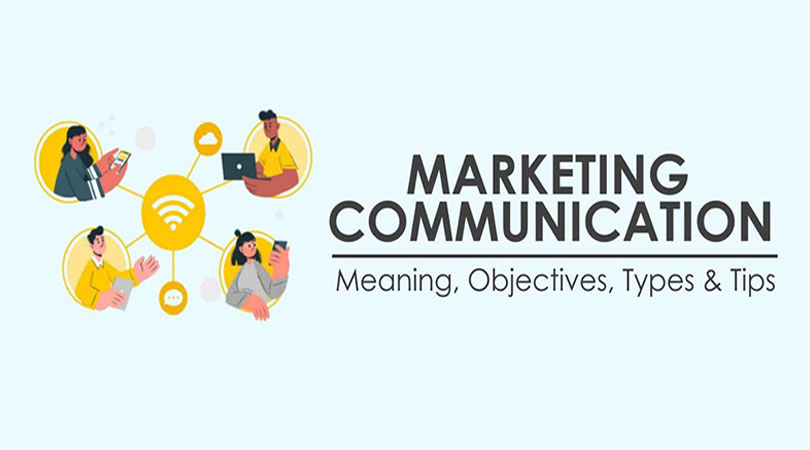Everything You Need to Know About Marketing Communication
There are many aspects of marketing that are important, but none more so than communication. It is the most critical aspect of any marketing plan, because it's what allows you to make your product or service available to people who may want to use it or buy it.
It's essential that your product or service be communicated effectively in order for it to be successful in the market. If your product or service isn't successfully marketed, then you will have wasted your time making it and then trying to sell it. Or worse, it may end up sitting on shelves without being sold at all!
The Meaning of Marketing Communication
Marketing communication is a broad concept that encompasses any form of communication used to promote and sell products or services. It is a way of engaging customers and other stakeholders, such as employees and investors. It is also the process of creating, delivering, and exchanging messages to customers or other audiences through various channels.
The main goal of marketing communication is to:
- effectively communicate a brand’s value proposition,
- inform potential customers about the product or service,
- and ultimately, drive sales.
To do this, marketers must utilise a variety of tools and techniques to reach their target audience. This includes traditional marketing methods like print and television ads, as well as digital tools like search engine optimisation (SEO), pay-per-click (PPC) ads, email campaigns, and social media posts.
A successful marketing communication strategy starts with understanding the target audience. Marketers must also create a plan to determine the right mix of communication tools that will best reach their target customers. This often includes a combination of traditional and digital marketing communication tools. For example, a retailer might use television commercials to drive awareness of their store, but then rely on SEO, PPC ads, and email campaigns to help drive sales.
Understanding what is marketing communication and implementing the right marketing communication mix can help businesses reach their goals. A well-thought-out plan that considers the various types of media available, the best approach for connecting with customers, and the desired results can go a long way in achieving success.
Tips for Effective Marketing Communication
To ensure that you make the most of your marketing communication strategy, there are a few tips that you should keep in mind.
1. First, be sure to define your target audience and tailor your message accordingly.
2. Additionally, keep your message clear and concise, and make sure that it reflects your brand identity.
3. Finally, use appropriate marketing communication tools, such as visuals and social media, to amplify your message and reach your target audience.
When it comes to marketing communication, there are numerous tactics you can use to effectively communicate with your customers. Taking the time to craft a strategic plan for your marketing communication strategy will help you reach your desired objectives and ultimately lead to success for your business.
The Importance of Marketing Strategies
It is essential to understand the importance of marketing strategies when it comes to marketing communication. A marketing communication strategy is a plan that helps businesses and organisations to reach their target audiences in the most effective manner. It involves the selection of the right channels for delivering the message, the type of message that needs to be delivered, and any other variables related to communicating with the target audience.
The marketing communication mix is an integral part of the overall marketing strategy. This mix includes elements like advertising, public relations, direct marketing, sales promotion, personal selling, and digital marketing. It should be chosen based on the organization's objectives, target audience, and budget. For example, if a company wants to increase brand awareness, they might opt for a mix of television ads, newspaper advertisements, radio spots, and digital campaigns.
In addition to the marketing communication mix, organisations also need to consider what kind of message they should deliver. The right message should be designed to reach the target audience in the most impactful way possible. Content should be tailored to meet the needs and interests of the specific target audience. Furthermore, the message should use a language that resonates with them and evokes emotion so that will make it memorable.
Finally, there are many tools that can help organisations reach their target audiences. These include social media platforms, email marketing software, content management systems, and analytics tools. By understanding the importance of these tools, companies can ensure that their marketing communication strategies are as effective as possible.
To summarise, marketing communication is essential for any business or organisation wanting to effectively reach their target audiences. The right mix of channels and messages needs to be selected, and powerful tools should be used to maximise effectiveness. By understanding the importance of marketing communication, companies can be sure that their strategies are reaching their desired outcomes.
CONCLUSION
In conclusion, marketing communication is an integral part of any successful marketing plan. It encompasses the mix of techniques used to communicate a message to potential customers.
The marketing communication mix consists of advertising, public relations, promotions, personal selling and direct marketing. To ensure success in marketing communication, organisations must create a well-thought-out strategy that outlines their objectives and target audiences.
Additionally, they must also select the right tools to effectively reach those audiences. With the right mix of marketing communication strategies, tools and tactics, organisations can create an effective message that resonates with their target market.


